Worst Elephant Losses in 25 Years
Using population estimates from a wide range of sources, including aerial surveys and elephant dung counts, the findings show that estimates for 2015 are 93,000 lower than they were in 2006. The continental total number of elephants is now thought to be about 415,000.
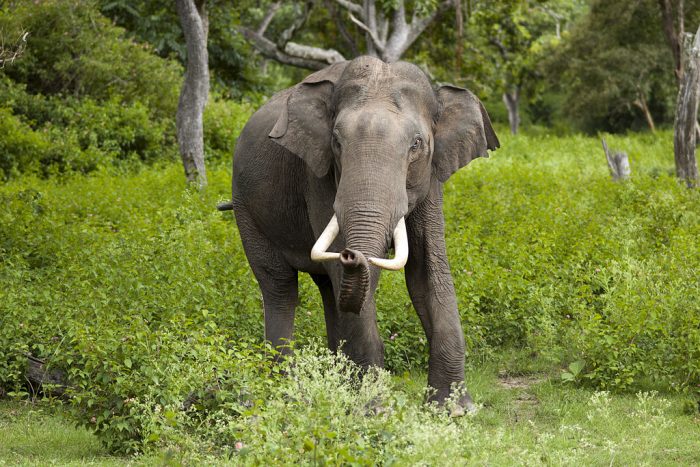 Image: By Yathin S Krishnappa (Own work) [CC BY-SA 3.0 (http://creativecommons.org/licenses/by-sa/3.0)], via Wikimedia Commons
Image: By Yathin S Krishnappa (Own work) [CC BY-SA 3.0 (http://creativecommons.org/licenses/by-sa/3.0)], via Wikimedia Commons Africa’s elephant population has seen the worst declines in 25 years, mainly due to poaching but also habitat loss. This is according to the IUCN’s African Elephant Status Report launched last month at the 17th meeting of the Conference of the Parties to CITES. The report is the authoritative source of knowledge about the numbers and distribution of African elephants across their 37 range states in sub-Saharan Africa.
More than 275 new or updated estimates for individual elephant populations across the continent are presented in the report, with over 180 of these being produced by systematic surveys. For the first time in almost a decade, the report has summarised elephant numbers at the continental, regional and national level, and has examined changes in population estimates at the local level.
Using population estimates from a wide range of sources, including aerial surveys and elephant dung counts, the findings show that estimates for 2015 are 93,000 lower than they were in 2006. However, this figure includes 18,000 individuals from previously uncounted populations, so the true figure is considered to be closer to 111,000 elephants lost. The continental total number of elephants is now thought to be about 415,000.
The main driver of the decline – the worst that Africa has experienced since the 1970s and 1980s – is the surge in poaching for ivory that began around a decade ago. Yet habitat loss poses an increasingly serious, long-term threat to the species.
“These new numbers reveal the truly alarming plight of the majestic elephant – one of the world’s most intelligent animals and the largest terrestrial mammal alive today,” says IUCN Director General Inger Andersen. “It is shocking but not surprising that poaching has taken such a dramatic toll on this iconic species. This report provides further scientific evidence of the need to scale up efforts to combat poaching. Nevertheless, these efforts must not detract from addressing other major and increasingly devastating threats such as habitat loss.”
Eastern Africa is the area most seriously affected by poaching, having experienced an almost 50% reduction in elephants. This is largely attributed to an over 60% decline in Tanzania. The forest elephants of Central Africa have been seriously affected by poaching for ivory since the 1990s. The Democratic Republic of Congo used to hold one of the most significant forest elephant populations in Africa, but this has now been reduced to tiny remnants of its former size.
West Africa’s elephants exist mostly in small, fragmented and isolated populations, twelve of which have been completely lost since 2006 from Cote d’Ivoire, Ghana, Guinea Bissau, Sierra Leone, Togo, Guinea and Nigeria. Poaching has not had such a huge impact in Southern Africa, but the region has recently been impacted by the poaching threat. Population declines have been reported in Mozambique and Zimbabwe.
“This is the first time since 2006 that we have produced an African elephant status report with a continent-wide update and analysis of elephant numbers and distribution,” says Holly Dublin, Chair of the IUCN Species Survival Commission’s African Elephant Specialist Group who led the preparation of the report. “This report highlights how important it is to regularly monitor, assess and analyse the status of the African elephant. Understanding population numbers and their distribution is crucial in order to recognise threats faced by the species, target conservation actions and assess their effectiveness.”

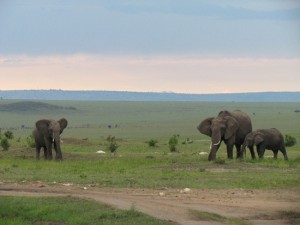
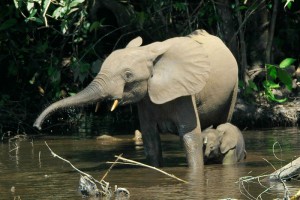
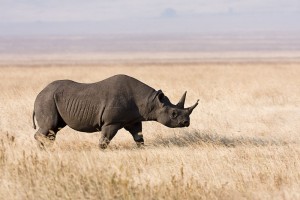
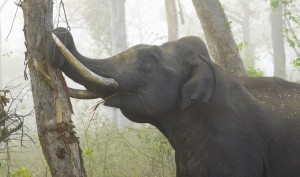
No comments yet.